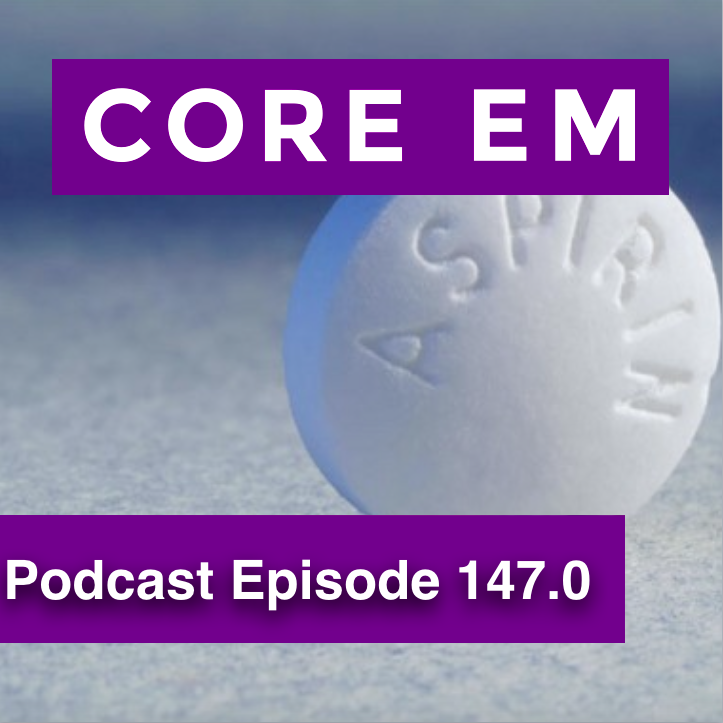This episode reviews the identification and management of patients with salicylate toxicity.
Episode 147.0 – Salicylate Toxicity
Show Notes
Take Home Points
- Always consider salicylate toxicity:
- In patients with tachypnea, hyperpnea, AMS and clear lungs
- In the presence of an anion gap metabolic acidosis with a respiratory alkalosis
- Treat salicylate toxicity by alkalinizing the blood and urine to increase excretion
- Avoid intubation until absolutely necessary. If you do have to intubate, minimize apneic time and consider awake intubation and nake sure your ventilator settings match the patient’s necessary high minute ventilation
- Think about chronic salicylate toxicity in unexplained altered mental status, tachypnea or metabolic acidosis in elderly
- Know indications for hemodialysis in salicylate toxic patients
Read More
- REBEL EM: Salicylate Toxicity
- LITFL: Salicylates
- Wiki EM: Salicylate Toxicity
- Rebel EM: Acute Salicylate Toxicity, Mechanical Ventilation, and Hemodialysis
- Mosier JM et al. The Physiologically Difficult Airway. The western journal of emergency medicine. 16(7):1109-17. 2015. PMID: 26759664



Jenny mentions that salicylates stimulate the respiratory drive, leading to metabolic alkalosis but I think she meant to say respiratory alkalosis 🙂
Absolutely. We updated the audio so hopefully, you can get the correct one if you refresh it now. Thanks!
Hello,
I thought the rise in the pH when you give Bicarbonate can only happen if the patient is able to blow out the excess CO2 produced by the Bicarbonate. If the patient is already maximally hyperventilating we would probably not see a rise in the pH, especially before intubation with the associated hypoventilation/apnea.
What did i miss?
A paper by John Sackles was mentionned. Did I miss the link in the show notes?
Thank you very much for the great podcasts!
Just added the Sackles (actually Mosier et al) to the shownotes. Thanks for pointing that out.
I agree that a bicarb push is unlikely to significantly effect pH in this situation. In salicylism, bicarb has other uses in management with alkalinizing the urine so not unreasonable to use but your assertions here are correct.
Thanks for the comments!